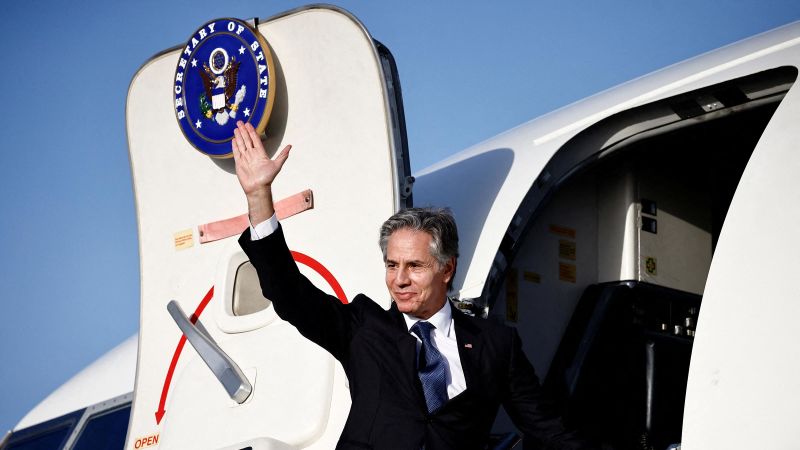[Secretary of State Antony Blinken offered his most detailed picture yet of his long-awaited plans for post-war Gaza, emphasizing the importance of not leaving a power vacuum in the decimated enclave. Blinken presented the “core elements” of his plan in a speech at the Atlantic Council, days before his term as top US diplomat comes to an end. However, there is no evidence that the incoming Trump administration intends to follow through with the plans.
Blinken acknowledged the deep divisions over the administration’s policy on Gaza, saying, “I wish I could stand here today and tell you with certainty that we got every decision right. I cannot.” He stressed the need for a day-after plan, requiring “all parties to summon the political will to make hard decisions, to make hard compromises.”
The plan would require the Palestinian Authority (PA) to invite international partners to help establish an interim administration in Gaza, with responsibility for key sectors such as banking, water, energy, and health. The international community would provide funding, technical support, and oversight.
The interim administration would be made up of Palestinians from Gaza and members of the PA, and would hand over complete responsibility to a fully reformed PA administration as soon as feasible. An interim security mission would be established, comprising members of partner nation security forces and vetted Palestinian personnel, focusing on creating a secure environment for humanitarian and reconstruction efforts.
Blinken also discussed the importance of a UN Security Council Resolution, a time-bound and conditions-based approach to a Palestinian state, and the need for Israel to abandon its annexation plans. He raised the prospect of an Israel-Saudi normalization deal as a way to achieve the long-sought goal of Israel’s greater integration in the region.
The top US diplomat also acknowledged the extremism of far-right Israeli officials, saying that “Israelis must abandon the myth that they can carry out de-facto annexation without cost and consequence to Israel’s democracy, to its standing, to its security.” He expressed concern over Israel’s continued reliance on military operations and its failure to address the root causes of the conflict, including the occupation and settlement construction.
Source link

